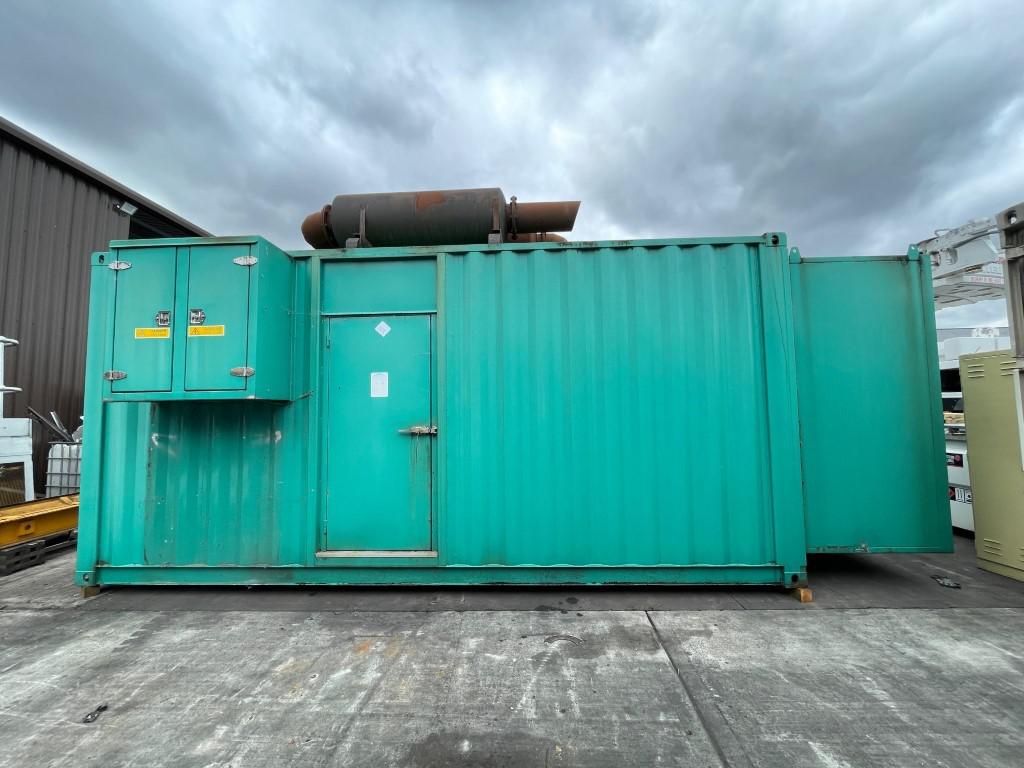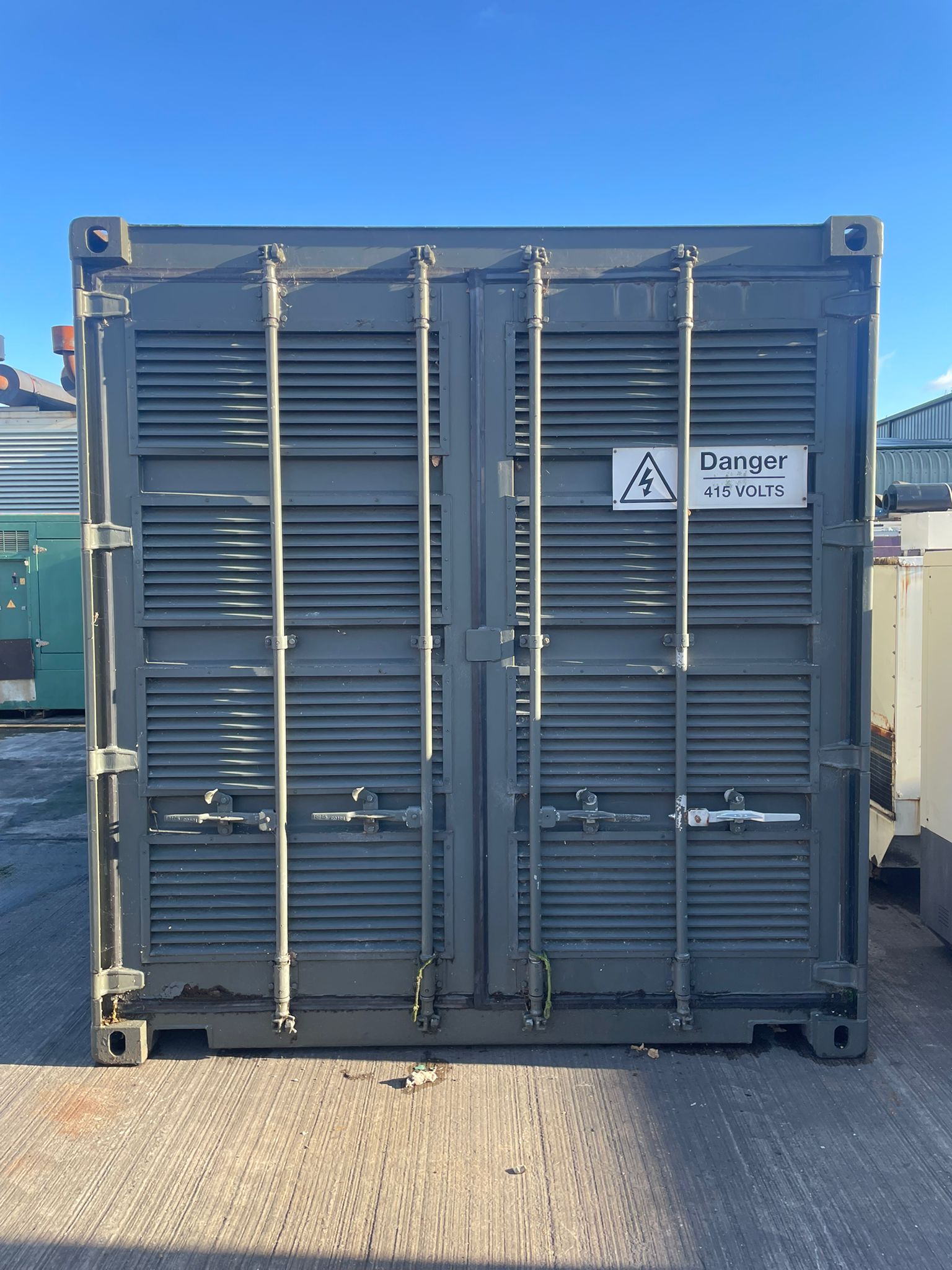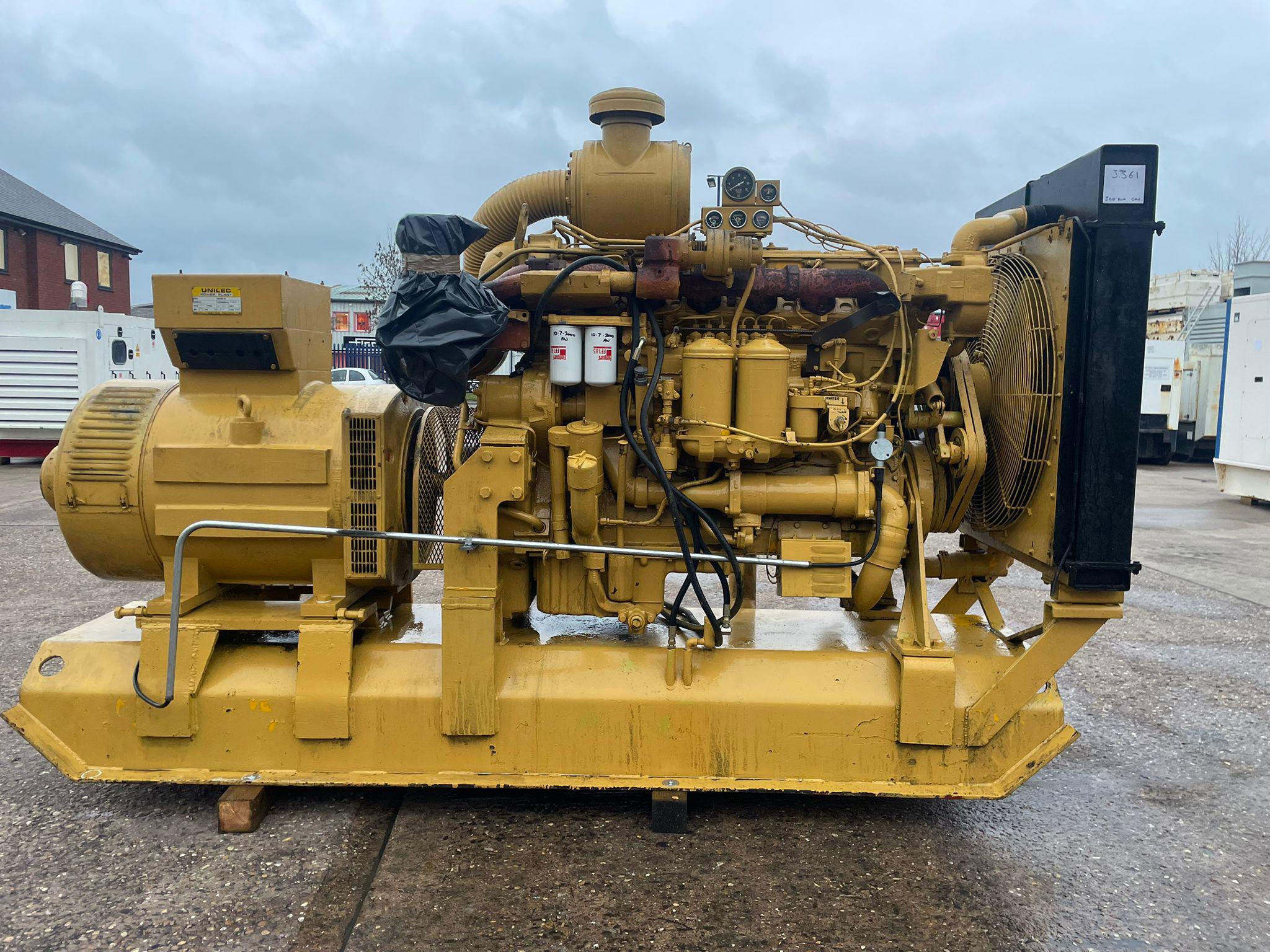How to Store Fuel for Maximum Shelf Life
If you own a diesel-powered generator or any other diesel-powered equipment, you understand the importance of maintaining a reliable fuel supply. Diesel engines are built to endure, but the fuel they run on can deteriorate over time if not stored correctly. At Generators for Export, we're committed to not only providing high-quality used generators but also helping you ensure that your fuel remains usable for when you need it most.
Diesel fuel, when stored improperly, can go bad, resulting in poor engine performance, corrosion, and even total system failure. This can be especially problematic during power outages or emergency situations when you rely on your generator to keep things running smoothly. So, how can you store diesel fuel for maximum shelf life? Let's dive into the details.
Does Diesel Go Bad?
Yes, diesel fuel can go bad and it happens faster than most people realise. Over time, diesel fuel undergoes a natural degradation process that affects both its performance and usability. Factors such as heat, air exposure, moisture, and microbial contamination can accelerate this deterioration.
When diesel degrades, the hydrocarbons in the fuel break down, forming sludge and varnish that can clog fuel filters and injectors. This can cause engines to misfire, lose power, or even fail to start at all. Additionally, the fuel's ability to combust efficiently is compromised, which can result in increased emissions and engine damage.
So, why does diesel fuel go bad?
- Oxidation: Exposure to air (oxygen) leads to oxidation, which causes the fuel to form gums and sediments that clog the engine's fuel system.
- Microbial Growth: Moisture in the fuel can encourage the growth of bacteria and fungi, which forms a sludge that settles at the bottom of the fuel tank. This can clog filters and damage fuel injectors.
- Contaminants: Dirt, dust, or rust particles can enter fuel tanks, further accelerate degradation and causes damage.
- Temperature Fluctuations: Heat can speed up oxidation, while freezing temperatures can cause fuel to gel, especially in colder climates.
How Long Does Diesel Last?
Diesel fuel has a shelf life of 6 to 12 months under optimal conditions. After this period, it begins to degrade However, several factors can influence how quickly diesel goes
bad:
- Quality of the Fuel: High-quality diesel fuel tends to last longer than low-quality alternatives. Buying fuel from trusted suppliers can reduce the risk of early degradation.
- Storage Conditions: Proper storage conditions can extend the shelf life of diesel fuel. Keeping it cool, dry, and away from direct sunlight is crucial.
- Additives: Diesel stabilisers and biocides can extend the life of fuel by slowing oxidation and preventing microbial growth.
If you're storing diesel for an extended period, you should consider taking steps to keep it fresh. Fortunately, there are several strategies to help you maximise the shelf life of diesel fuel, whether you're preparing for an emergency or managing your generator's
fuel supply.
How to Store Diesel Fuel for Maximum Shelf Life
1. Use Proper Fuel Storage Containers
The first step in storing diesel fuel is choosing the right container. Not all fuel containers are created equal, and using the wrong type can cause degradation over time.
Approved Fuel Tanks: Always use containers that are specifically designed for diesel storage. These tanks are typically made from materials that prevent contaminants from entering the fuel and are equipped with proper seals to avoid leaks. View our current range of used generator0 components to explore our collection of used fuel tanks.
Keep the Fuel Tank Sealed: Fuel tanks should be kept tightly sealed to prevent air from mixing with the fuel. Air causes oxidation, which accelerates the degradation process.
For larger-scale storage, consider installing an underground or above-ground fuel tank that is designed for long-term storage.
2. Store Diesel in a Cool, Dry Place
Heat and direct sunlight can speed up the degradation process. Ideally, diesel fuel should be stored in a cool, dry area with temperature fluctuations kept to a minimum.
Excessive heat can cause the fuel to oxidise, while cold temperatures can cause it to gel.
Temperature: The optimal storage temperature for diesel is between 10°C – 21°C (50°F and 70°F). Avoid storing it in areas that are prone to high heat or significant temperature changes.
Avoid Sunlight: Diesel fuel should be stored away from direct sunlight, which can cause it to heat up. Sunlight can also break down the fuel's molecular structure over time.
3. Use Fuel Stabilisers and Biocides
Fuel stabilisers and biocides are products designed to help prolong the shelf life of diesel fuel. These additives can prevent oxidation and microbial growth, two of the main causes of fuel degradation:
- Fuel Stabilisers: These additives work by slowing down the oxidation process, preventing the formation of gums and sediments in the fuel. By adding a stabiliser, you can extend the shelf life of your diesel fuel by months or even years.
- Biocides: If you live in a humid environment, a biocide can prevent microbial growth in the fuel, which leads to the formation of sludge and other contaminants. Diesel fuel is particularly vulnerable to microbial contamination when moisture is present, so using a biocide is especially important in areas with high humidity.
Be sure to follow the manufacturer's instructions for proper dosage when adding stabilisers or biocides.
4. Keep Moisture Out
Moisture is one of the biggest threats to diesel fuel. When water enters the fuel, it can cause microbial growth, which leads to sludge and debris that can clog fuel lines and injectors.
To keep moisture out of your diesel fuel:
- Use Water-Absorbing Filters: Consider installing water separators or fuel filters with water-absorbing capabilities. These devices remove any water that may enter the fuel, preventing microbial contamination and sludge build up.
- Seal the Container: Make sure the storage container is sealed properly to prevent water from entering. This is particularly important in areas prone to humidity or rain.
- Avoid Filling Tanks When They Are Empty: Empty tanks can accumulate moisture from condensation. If you're filling up a tank, avoid leaving it only partially filled, as this can lead to condensation build up inside the tank.
5. Rotate Your Fuel Supply
Fuel rotation is a good practice for ensuring your diesel remains fresh. If you're storing large quantities of diesel fuel for extended periods, it's crucial to use older fuel first. This helps to maintain a consistent supply of usable fuel and ensures you're not keeping any fuel for too long. Make sure to mark the containers with the dates of purchase to easily track which one needs to be used first.
6. Consider Adding a Fuel Polishing System
If you’re storing a large amount of diesel fuel, a fuel polishing system can be a good investment. This system removes contaminants, such as dirt, water, and microbial growth, and filters the fuel to ensure it remains clean and usable. By regularly polishing your fuel, you can ensure that it stays in top condition, reducing the risk of damage to
your diesel-powered equipment.
When to Dispose of Bad Diesel Fuel
Even with the best storage practices, diesel fuel will eventually degrade. If you notice that your stored diesel fuel has turned cloudy, smells rancid, or has visible sludge in it, it's time to dispose of it. Bad fuel can clog engines and cause lasting damage to fuel
systems.
Note: Never dispose of diesel fuel improperly. Always contact your local waste disposal facility for instructions on how to safely dispose of degraded fuel.
Keep Your Diesel Fuel Fresh
Storing diesel fuel properly is critical for ensuring that your generator or other diesel-powered equipment will run efficiently when you need it most. By using the right containers, keeping your fuel cool and dry, adding stabilisers, and preventing moisture, you can extend the life of your diesel fuel and avoid costly repairs or performance
issues.
At Generators For Export, we not only offer high-quality used diesel generators but also
provide the expertise and advice you need to keep your equipment running smoothly.
Whether you're preparing for an emergency or need reliable backup power, we're here to help you get the most out of your diesel-powered equipment.
With the right storage practices, you can ensure that your diesel fuel stays fresh, so you'll be ready for anything that comes your way.
Need dependable fuel storage or a generator you can trust? Contact Generators For Export today.
Call: +44(0)1386 553344 | Email: sales@gfe.uk.com






